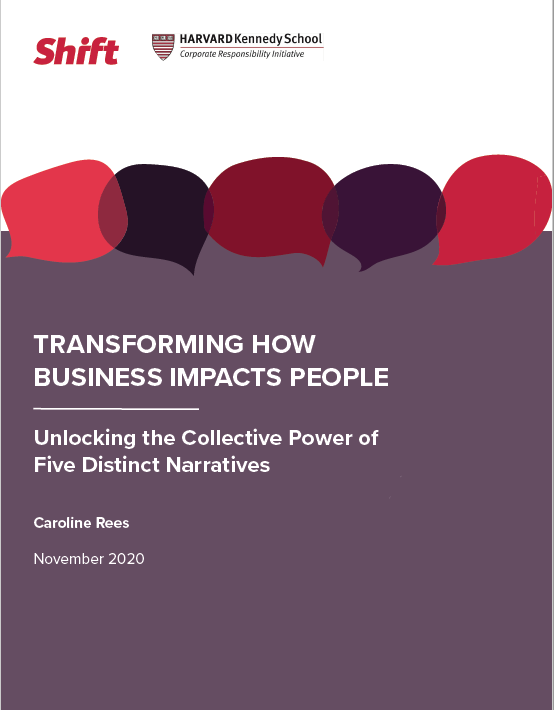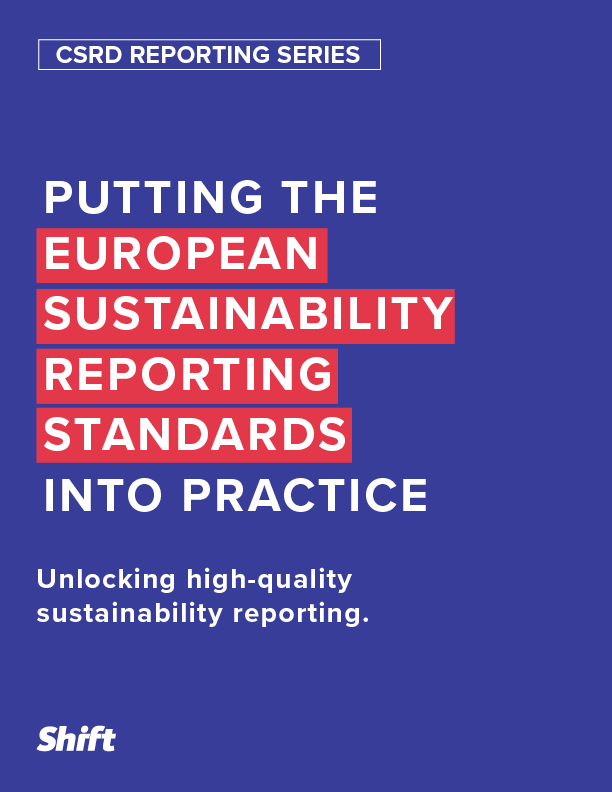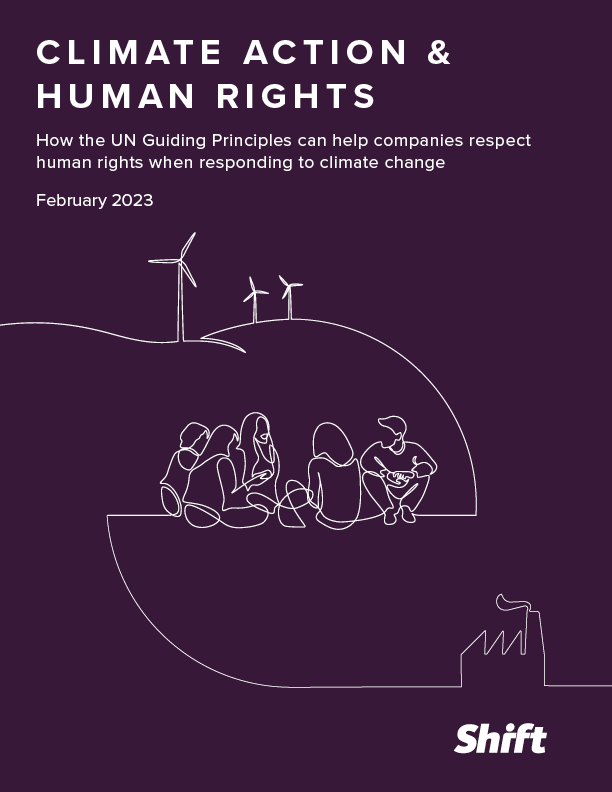Featured Resources
The Shift Library
Shift’s library has a growing collection of resources, tools and reports designed to help a variety of stakeholders put the UN Guiding Principles into practice. By default, resources are listed chronologically. You can use the search bar to look for titles by keyword or author, or use the filters below to search by change agent, thematic expertise, pillar of the UN Guiding Principles and/or date. Looking for Valuing Respect tools and resources? Visit the dedicated library of resources of the project, here.
Filter by:

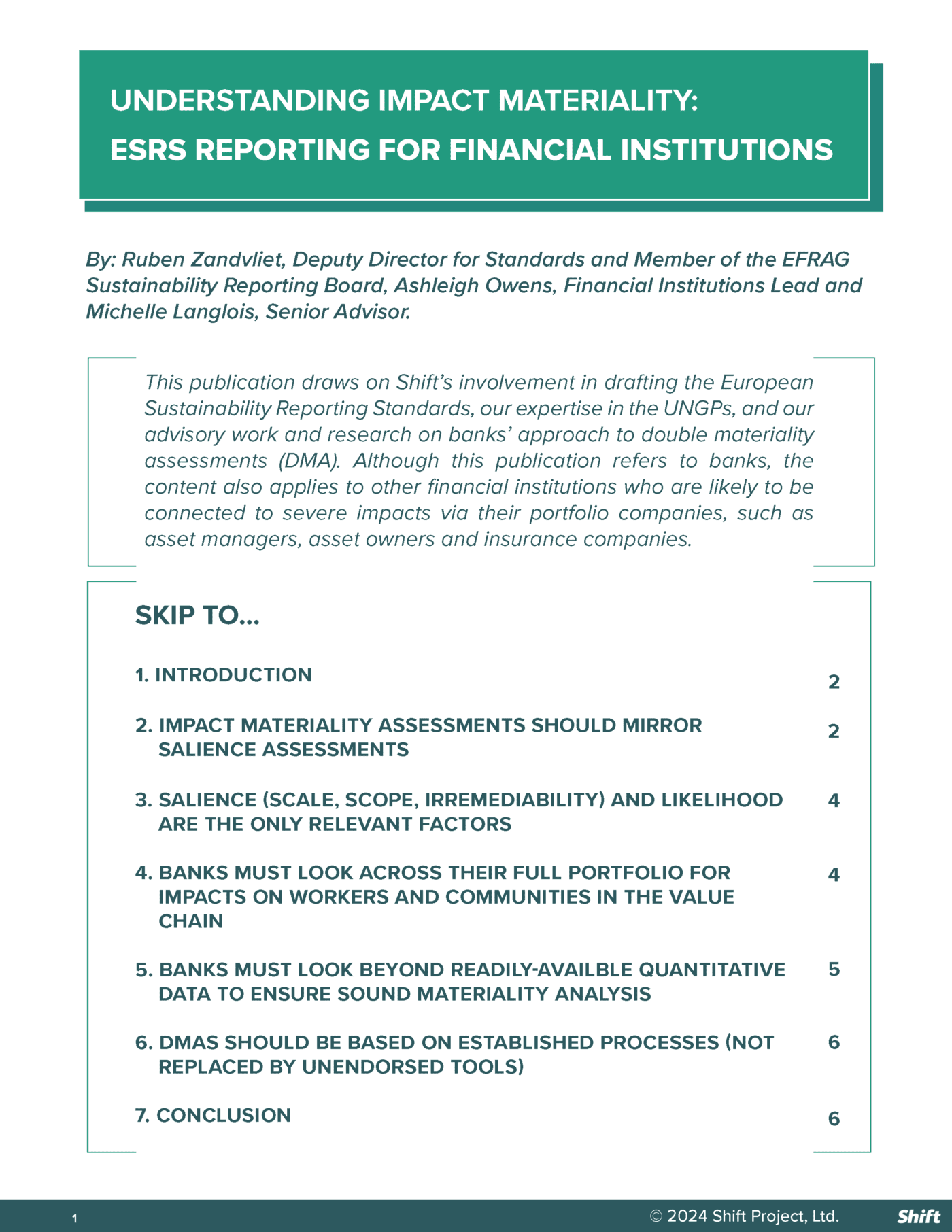
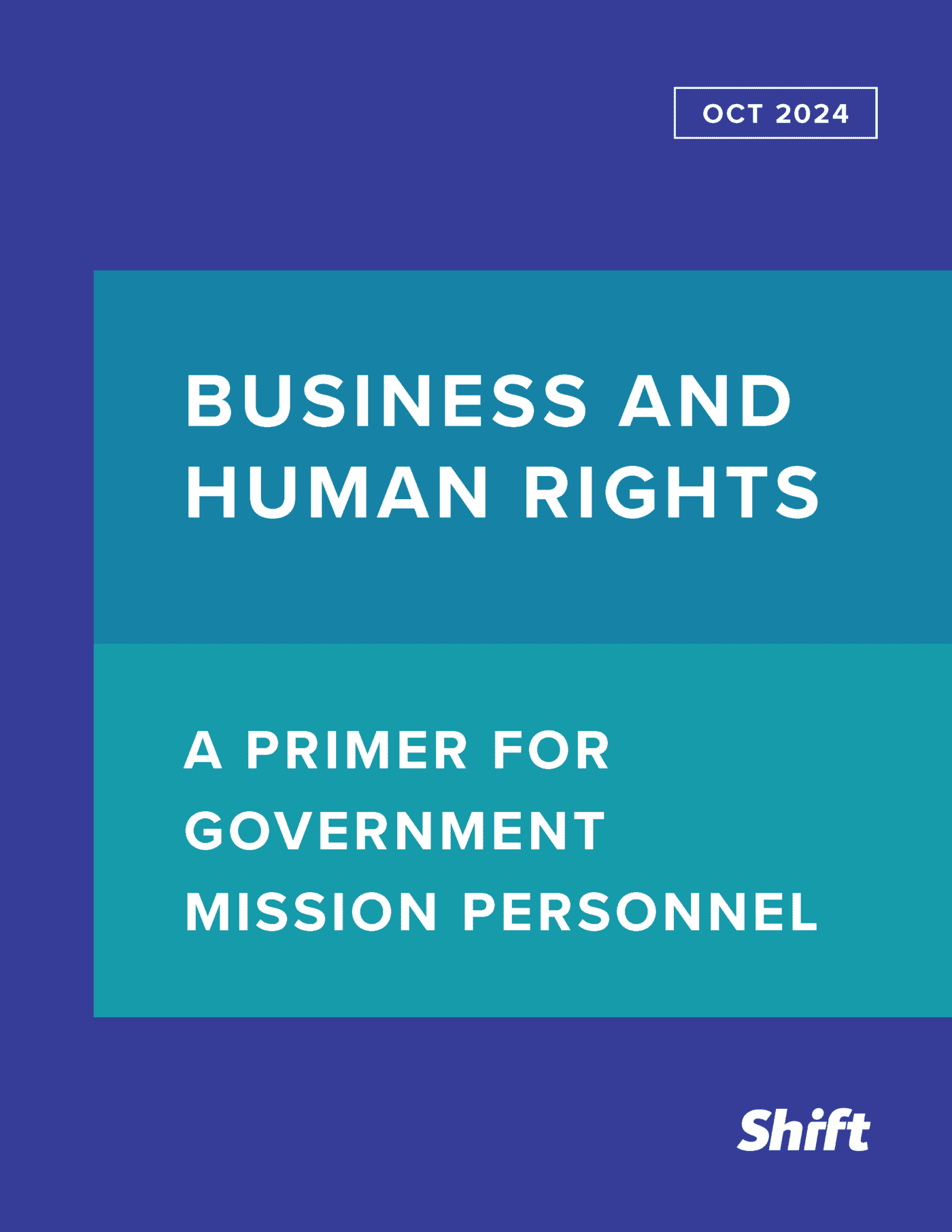
Aligning the EU Due Diligence Directive with the International Standards: Key Issues in the Negotiations
In this report, Shift takes stock of where progress has been made in negotiations on the Corporate Sustainability Due Diligence Directive – and where work still remains – to ensure greater alignment between the positions of the three EU political institutions – the Commission, Council and Parliament – and the international due diligence standards.
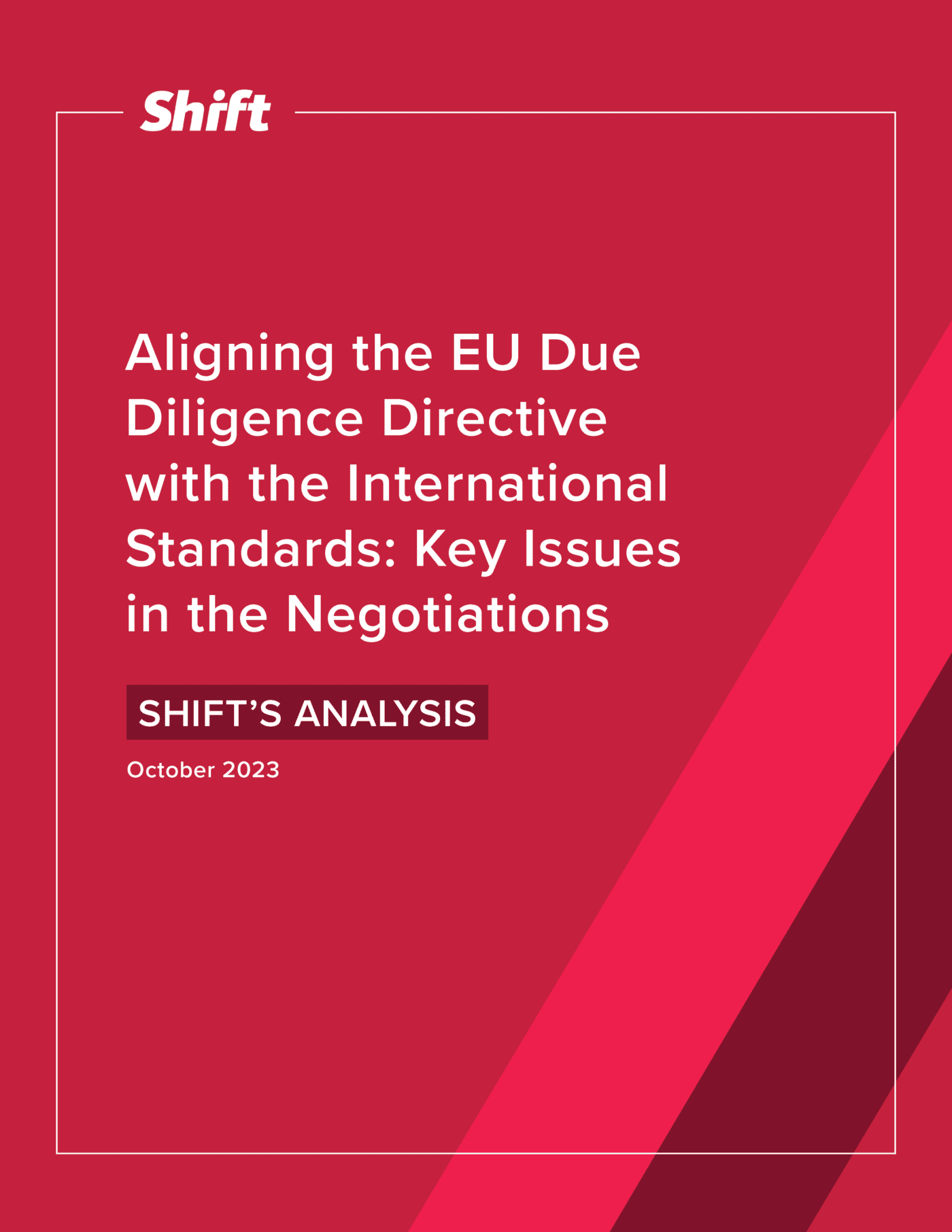

The Case for Living Wages: How Paying Living Wages Improves Business Performance and Tackles Poverty
This report, jointly published by Business Fights Poverty, the University of Cambridge Institute for Sustainability Leadership (CISL) and Shift with support from Unilever, reveals why paying a living wage, and ensuring they are paid in the value chain, pays back to the bottom line by strengthening business performance, resilience, and stability, while delivering measurable, social impact and enabling businesses to more effectively deliver on human and labour rights obligations.
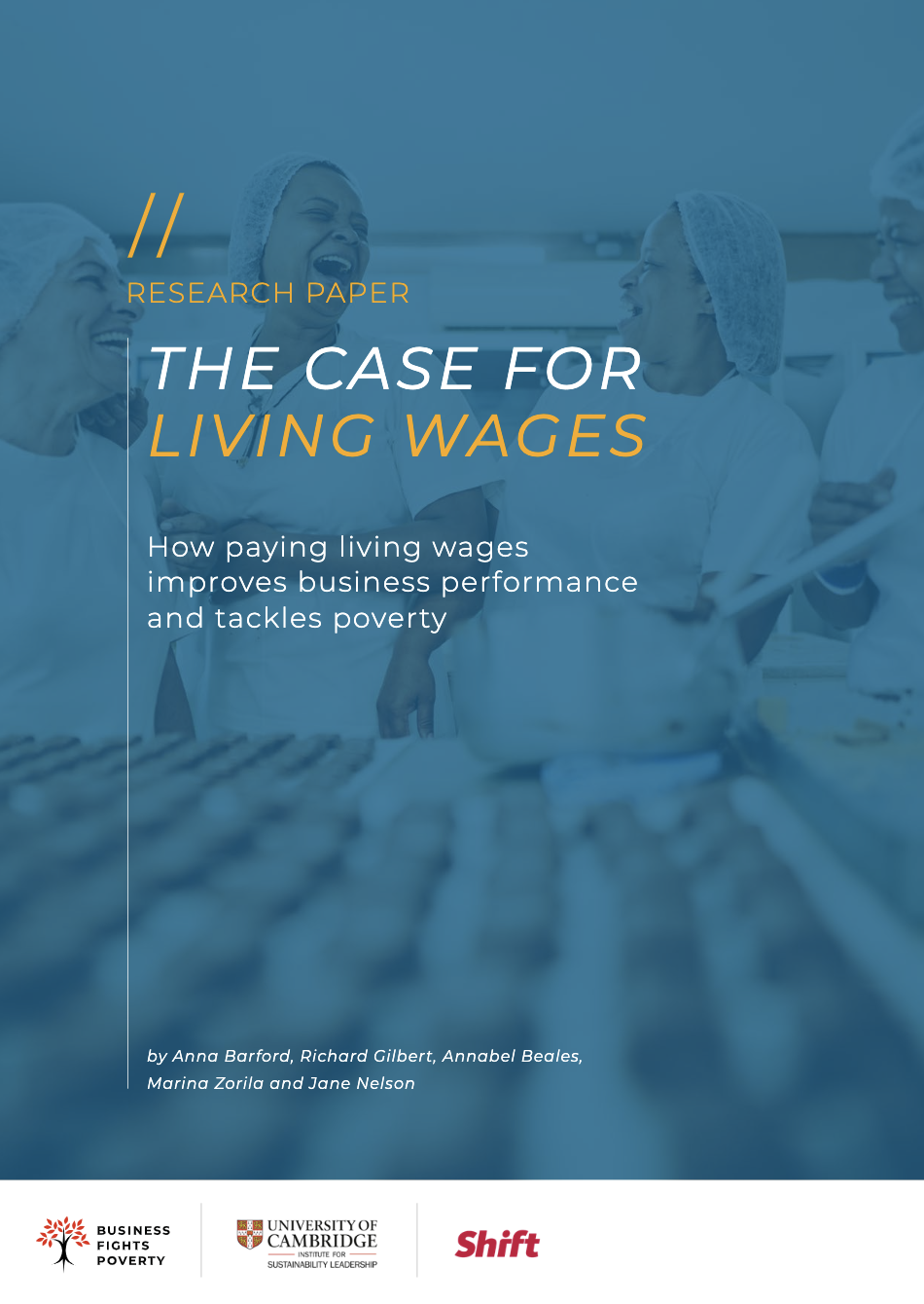
Beyond Pride: The Rights of LGBTI People and the Corporate Responsibility to Respect
A resource on how companies can negatively impact the lives of LGBTI people and practical approaches they can take to prevent and address risk, as they work to become better allies and fulfill their responsibility to respect human rights.
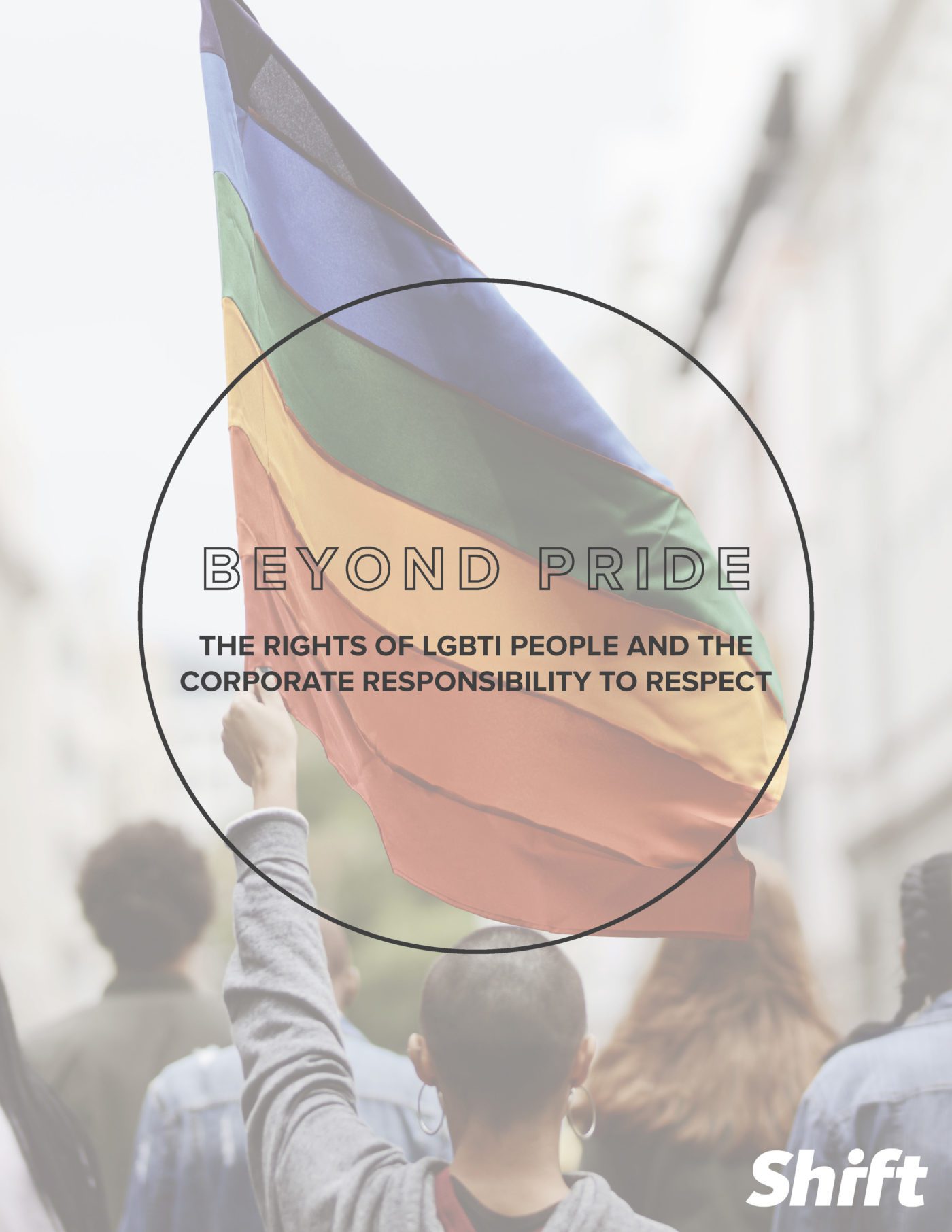
Making ‘Stakeholder Capitalism’ Work: Contributions from Business & Human Rights
For the first time in four decades, leading business associations, corporations, and the corporate law and governance community are seriously debating the social purpose of the corporation. The idea of stakeholder governance – moving beyond shareholder primacy toward some form of ‘stakeholder capitalism’ – is in play. But the how question unveils significant differences of opinion as well as difficulties. This working paper draws on practical experience in the field of business and human rights to focus on a pathway that reflects the ambition of stakeholder capitalism, but which current reform proposals have largely overlooked.
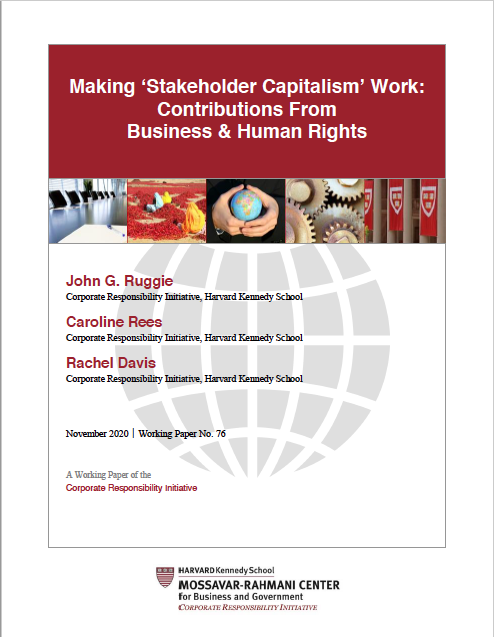
Corporate Activism through the Lens of the UN Guiding Principles on Business and Human Rights
This fireside chat was part of Reuters’ Responsible Business Europe 2020 and aired on October 26, 2020 While respect for human rights and corporate activism are often seen as distinct, in this short video, Business Engagement Director Francis West and Advisor Daniel Berezowsky make the case for companies to use their voice and influence as […]

Transforming How Business Impacts People: Unlocking the Collective Power of Five Distinct Narratives
Narratives drive conversations. They serve a framing purpose and offer a lens through which we enter a discussion, make sense of an issue and find meaning in our world. Ultimately, they shape decisions. When it comes to conversations about how people are affected by business conduct and the global economy, a number of distinct narratives are influencing decision-makers today: the development narrative of sustainability; the political narrative of inequality; the economic narrative of stakeholder capitalism; the investment narrative of ESG performance; and the accounting narrative of human and social capital. All of these narratives co-exist, yet they also compete for attention. In this working paper, Caroline Rees explains why continuing down this siloed approach could result in each of these narratives becoming unnecessarily diluted and falling short of its aims. By contrast, she proposes that the narrative of business of human rights – grounded in global normative standards and a focus on those people most at risk of harm from business practices – can be of central relevance in bringing these other five narratives together, and helping them achieve a goal they all share: a world in which business gets done with respect for the basic dignity and equality of everyone.
